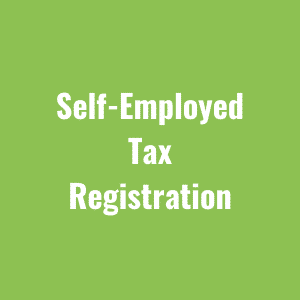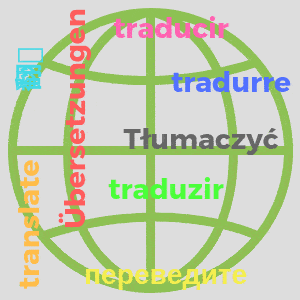How to Buy a Property in Germany
[Last update: December 2021]
Mortgage & Property Buying Process Explained
Thinking about buying a home? To a first-time buyer who wants to purchase a property in Germany, the buying process can appear overwhelming and hard to understand. Even if you are fluent in German, the process from first understanding your mortgage affordability to finally becoming the lawful owner of a property can be overwhelming. When buying a home in Germany, you will certainly be exposed to many unfamiliar German terms and daunting processes which are different from buying property in your home country.
In order to help you buy a property in Germany, we asked an expert to come up with this Guide to clearly outline what you can expect at every single step of you going through the property buying experience. Whether you are looking for your dream house for your family or are an investor looking into the German real estate market, the steps described in this guide will help you navigate through the process.
Note: The buying process outlined in this article is mostly applicable to the process when buying an already existing German property. If you are looking to buy a new-built property from a German project developer, the buying process will differ slightly but is fundamentally very similar.
=========================================
=========================================
---------------------------------------------------------
Disclaimer:
This article describes a typical “Altbau” case in Berlin.
The mortgage & buying process could slightly differ depending on the Bundesland.
The mortgage & buying process is not a fully standardized and regulated process.
---------------------------------------------------------
Step 1: Check your affordability online
Before you start your property search, it is critical that you understand if you qualify for a German mortgage and how much you could potentially afford. Across Germany you must cover your purchase fees, these vary by Bundesland but are composed of the real estate broker commission (if required), the property transfer tax and the notary fees. Combined these fees can be anywhere from 5% and 15% of the total purchase price. Check your affordability online now.
Step 2: Meet a mortgage advisor
After you have calculated your maximum affordability, it is helpful that you get in touch with an independent mortgage adviser.
An independent mortgage advisor is able to prequalify your application and give you a pre-financing certificate to help in your property search. Not only can independent mortgage experts access all the German banks but they can advise you on the appropriate mortgage product for your situation. The advisor will help you understand if there are any limitations with regards to your employment status, residency status etc. that you may not have previously considered.
Important:
Most mortgage lenders will require you to have homeowners insurance (Wohngebäudeversicherung) in order to get a loan. This kind of insurance offers protection against the risks of fire, water leakage, lightning, explosion, storm or hail damages to the property. Get a free quote now. The homeowners' insurance doesn't have to be confused with household insurance which protects the content in your home (furniture, electronics, clothes, etc).
Step 3: Finding the right property
Your affordability result will form the basis for the property price range you should be looking for. There are many ways of identifying the right property given your personal and financial circumstances using popular platforms like Immobilienscout24 and Immowelt, both in German, sadly. You can also find more platforms here.
In Germany, you can buy existing properties via real estate brokers or, alternatively, you can buy new properties (“NeuBau”) from project developers. The key difference is that buying a property from a project developer can save you from paying the real estate commission, which in cities like Berlin is 3.57%.
Note: Buying a “NeuBau” doesn’t only mean that you can just afford 3.57% more. In most cases, it means that the property price (or the size of the house) can be up to 50% bigger because you are borrowing against your down payment. In Finance, this is called leverage.
Step 4: Reserving the property
When buying through a real estate broker, the most common method of securing that property is to sign an official reservation agreement. After you have viewed the property, the seller/real estate broker will send you a reservation form. In these cases, it is often on a “first come, first served” basis. In some cities, like Berlin, where real estate brokers are pickier due to the high demand, it can pay off to have a pre-financing agreement set up via a mortgage expert or lender.
To reserve a property, you will typically need to pay a reservation fee (0.5-1% of the property price). In some rare cases, reservations can be free of cost. Only after the reservation fee has been paid, will the property be reserved in your name and be taken off the market.
The reservation period usually varies between 2-4 weeks and that should give you enough time to finalize your mortgage. If you go ahead with the property purchase, the reservation fee will be deducted from the broker commission or the property price.
If you decide not to purchase a property that you have reserved and paid a fee for, the reservation fee is legally required to be paid back.
==========
If you decide to not buy the property that you have reserved and paid a fee for, the bank will get you back the reservation fee!
==========
Step 5: Finalizing your mortgage contract
After the property has been reserved in your name, you will have several weeks to finalize your mortgage contract. Ideally, you have already met your mortgage adviser before reserving your property so that you can quickly get your mortgage approved.
The most important things to consider are:
- How long do you want to fix the interest period?
- How quickly do you want to pay back your mortgage?
- How much equity should you put down to get the best rate?
Together with a mortgage adviser, you will then analyze your personal situation and find the right mortgage for your situation. The adviser will take the property (and its valuation) into account to finalize your mortgage, applying at the bank that gives you the best rate for this combination.
To finalize your mortgage contract, you must have all necessary property documents from the seller. In addition to your personal documents, the property documents are essential to complete your mortgage application. Your mortgage advisor will combine all personal and property documents and submit the entire mortgage application to the most suitable mortgage lender.
Step 6: Your mortgage is approved
After your mortgage application has been submitted, it will usually take a lender 3-10 working days to process your application. Some banks may ask for additional information to clarify questions related to your employment status, residency status, income etc. Ideally, your mortgage advisor will have prepared this beforehand to reduce the chance of any surprises.
In some cases, for example with properties valued at over 500.000€, the bank may have your property appraised by an external expert to determine the final value.
After all remaining questions have been clarified, the bank will let your mortgage advisor know about the final mortgage approval.
Step 7: Signing your mortgage contract
After receiving the mortgage approval, you will typically have up to 2 weeks to sign your contract (your mortgage conditions will not be subject to change during that period).
It is important to note that there is no financial or legal obligation if you decide to not sign a mortgage contract that has already been approved by the bank. The bank will not charge you any penalty fee for not signing the contract. This gives you the flexibility in case something does not go as planned.
==========
If you decide to not sign a mortgage contract that has already been approved by the bank, the bank will not charge you any penalty fee!
==========
Step 8: Your purchase contract is drafted
After you have reserved the property and signed your mortgage contract, the next step will be to start drafting the purchase contract between you and the seller.
A public notary, that either you or the seller is free to choose, will create the first draft of the purchase contract.
Leading up to the date of you signing the final version of the purchase contract, you can communicate with the notary and propose changes and additions to that draft.
It should be noted that from the day that you receive the first draft, there is a mandatory 14-day waiting period before the final contract could be signed at the notary's office.
Step 9: Signing the purchase contract (Notarization)
On the day that you sign the purchase contract, you will need to visit the notary office personally. At the notary, you will meet the seller.
The notary will read you the entire purchase contract out loud. You are allowed to ask questions in between and potentially propose last-minute edits to the contract. The notary procedure usually takes 1 hour.
Note: The notary will arrange for you to be named as the future owner of the property in what is known a priority notice. This notice is written to the Land Registry (“Grundbuch”). This notice implies that you have been named as the only buyer and protects your right to have the title of ownership transferred to your name 8-16 weeks later.
Note: From the date that you sign the purchase contract, you also become liable for all rights and obligations that come with owning property, e.g. maintenance fees, property tax, etc.
=========
In some Bundesland, a sworn interpreter is needed to translate the notarization. In some other States, a friend with very good German could be accepted.
Some banks will need the purchase contract to be in the language of the buyer (e.g. ING).
Some banks will need the purchase contract to be in the language of the buyer (e.g. ING).
=========
Step 10: You need to pay the closing costs
After your property purchase has been fully notarized, the next step will require you to pay the closing costs from your own equity. If you bought your place through a real estate broker, a few days after signing the purchase contract, you can expect to receive an invoice from that broker (in Berlin, the buyer needs to pay a commission of 3.57% of the property price). In some states, the commission is split between the buyer & seller.
Several weeks after the purchase has been signed, you will also need to pay for the notary fees. This usually amounts to approx. 1.5% of the property price but can be slightly higher or lower depending on the purchase price.
The third closing cost is the property transfer tax (“Grunderwerbssteuer”) which in Berlin is 6%. This tax will not need to be paid immediately to the tax office. You will typically receive a letter 6-10 weeks after signing the purchase contract in which you will be requested to pay the amount.
In some cases, you will also need to pay a small amount (~100€) to the property manager because their approval for the property purchase might be needed.
Step 11: You pay the purchase price to the seller
6-8 weeks after signing the purchase contract, the notary will ask you to transfer the full purchase amount to the seller. This means that you will need to pay part of the purchase price from your own equity, i.e. this is your down payment.
The remaining amount (your loan amount) will need to be transferred directly from your mortgage lender to the seller's bank account.
To approve that payment, you will need to fill out a purchase order form that authorizes your lender to make that payment.
Step 12: You gain full access to your new property
Only after the seller has received the full amount of the purchase amount on their bank account, you can arrange for the official handover of your new property.
In case of a vacant property, you will arrange for a key handover either with the real estate broker or the seller directly.
In the case of you buying a rented property, there is no official key handover. You might arrange to meet the tenants or inspect the property in more detail.
Note: Even though at this stage you have gained full access to your new property, it still does not mean that you are the lawful owner of that property.
You only become the lawful owner after you have been entered into the German Land Registry (“Grundbuch”). This process could take anywhere between 8-16 weeks after signing the purchase contract at the notary.
Step 13: You pay the real estate transfer tax (RETT)
One to ten weeks after signing the purchase contract (see "Step 9"), you will receive a letter from the tax office asking you to pay the tax amount. The RETT needs to be paid within 4 weeks to avoid fines.
The RETT is calculated by multiplying the RETT basis (usually equal to the fair market value of the real estate) with the applicable RETT rate. The RETT rate depends on the location of
the property and ranges between 3.5% and 6.5%, depending on the Federal State.
The tax office will then notify the notary office that this tax has been paid and a so-called clearance certificate will be issued to the notary.
The notary will then instruct the Land Registry to change the property's ownership title to your name.
Step 14: You become the lawful property owner
Only after you have paid the land register fee (between 0.5% and 1.5% of the purchase price) to the German Land Registry, will the ownership title be officially transferred to your name. The land registry entry process is called "Grundbucheintrag" in German and it is regulated by the "Grundbuchordnung" (GBO).
Congratulations, you are now the legal property owner! This last step concludes the whole process of purchasing an existing property in Germany.
Need help?
Whether you are purchasing or refinancing a property, our experienced home loan advisors are available around the clock to help you navigate through your German property purchase process.
Like many mortgage brokers, we get paid by the German lender banks. Unlike many brokers, we won't charge you any fees for our services. We're confident that we always identify the best rate for you. But if you think you find a lower rate from a different lender, we will try to negotiate an even better deal.
»» Get started now! ««
























8 Comments
Nice article, thanks for sharing! Here is a video on documents to check before buying a house in Germany.
ReplyDeletehttps://youtu.be/se9pS8siAUw
Such a detailed and helpful post! There is also a checklist on how to properly inspect a potential house and look for possible defects when visiting a property in Germany- https://mademoisellein.de/buying-a-house-in-germany-as-a-foreigner
ReplyDeletegreat post, best I have found regarding the process in detail
ReplyDeleteGood info.
ReplyDeleteOn Step 13, supplementation: The real estate transfer tax (RETT) assessment (more accurate than property tax) can also come as quickly as one week after the notarization date. RETT to be paid within 4 weeks then to avoid fines...
ReplyDeleteA mortgage is usually a loan sanctioned against an immovable asset like a house or a commercial property. The lender keeps the asset as collateral until the borrower repays the total loan amount. Finance Hunt SW15 2PG 2021
ReplyDeleteBut, do you get a paper deed at the end of the process?
ReplyDeleteOf course, you get a paper. Germany is all about papers ;-)
Delete